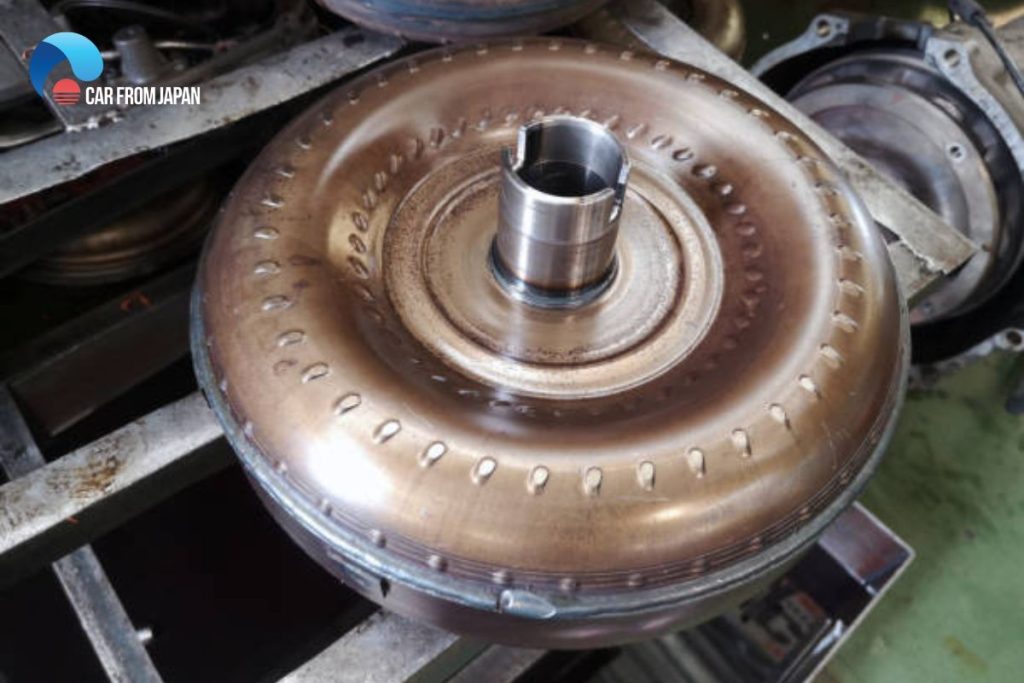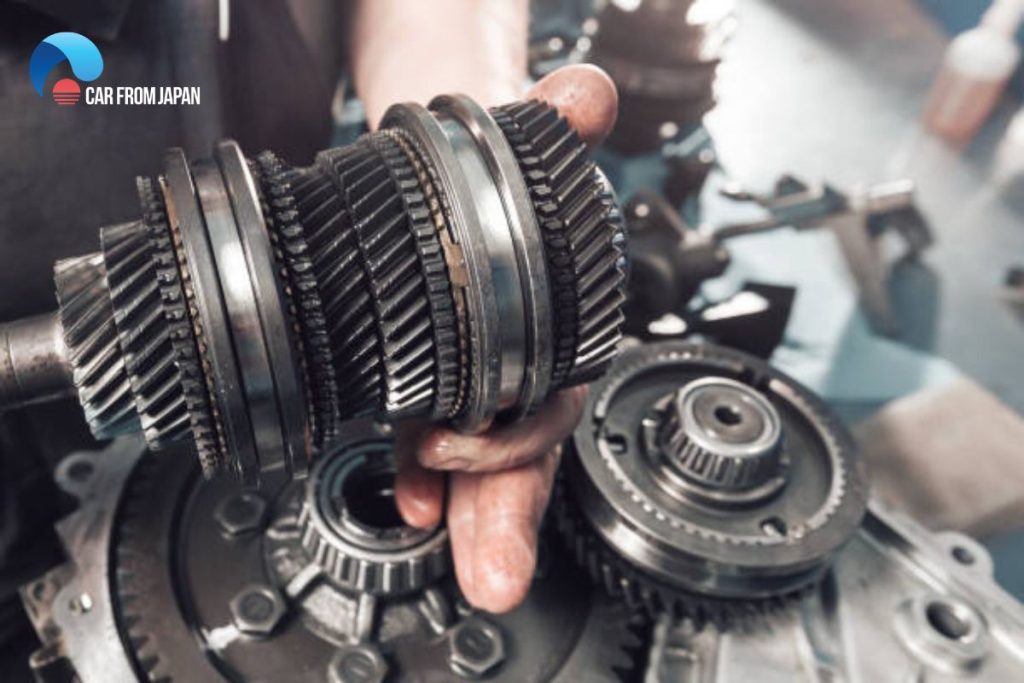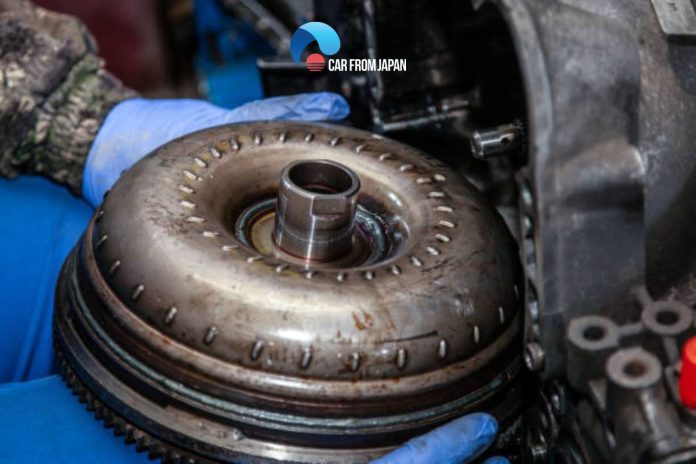That sinking feeling when your car isn’t shifting right, or it’s making strange noises from under the hood, is something no driver wants. Immediately, the big question pops up: is it a ‘smaller’ problem, like a bad torque converter, or is the entire transmission on its way out? Knowing the difference is crucial, not just for your peace of mind, but also for understanding potential repair costs. In this guide, we’ll simply explain what each of these important parts does. Bad torque converter vs bad transmission, what typically goes wrong with them, and how you might be able to tell one issue from the other.
Contents
- What is a Torque Converter?
- What is a Transmission?
- Bad Torque Converter vs Bad Transmission Symptoms
- How to Address These Issues
- FAQs
- Is it more expensive to replace a torque converter or a transmission?
- Can a bad torque converter damage the transmission?
- Can routine check-ups ward off these issues?
- Can a Bad Torque Converter or Bad Transmission be repaired, or do they need replacement?
- What types of sounds are associated with a faulty torque converter?
- Conclusion
What is a Torque Converter?
The torque converter, often an unsung hero, bridges the gap between the engine and the transmission. It’s an essential component that regulates the flow of power from the engine to the transmission, especially when the vehicle is stationary.
Imagine a dance duo where one partner must interpret the other’s movements and respond accordingly to produce a beautiful performance.
The torque converter acts similarly, ensuring the engine and transmission are in sync. It translates the engine’s power, transferring it to the transmission using hydraulic fluid, ensuring that the two can operate independently and yet remain connected.
What is a Transmission?
The transmission is akin to the brain of your vehicle’s movement. It’s a complex system designed to ensure the power generated by the engine is aptly utilized to move the car.
If you’ve ever been on a bicycle ride across varying terrains, you’ll know the importance of shifting gears.
It ensures efficiency and conserves energy. In cars, the transmission takes on this role, adjusting power output to suit the vehicle’s needs, making sure you cruise smoothly whether you’re accelerating on a highway or navigating city streets.
Bad Torque Converter vs Bad Transmission Symptoms
Signs of a bad torque converter
A malfunctioning torque converter might not always scream for attention, but vigilant car owners can spot the subtle hints:

Slipping
It’s an unsettling feeling when your car, in the middle of a journey, feels like it’s lost its grip, almost like a sudden power outage. This can be attributed to the torque converter failing to maintain the necessary hydraulic pressure.
Overheating
Cars have a way of signaling distress. If your dashboard suddenly flashes with a temperature warning, don’t dismiss it. A misbehaving torque converter can cause transmission fluid to break down, leading to overheating.
Shuddering
Remember those times when you try to start a stubborn lawn mower, and it vibrates with resistance? If your car behaves similarly, especially during acceleration, it could indicate issues with the torque converter.
Signs of a Bad Transmission
If it’s the transmission that’s acting up, the symptoms might be a tad more conspicuous:
Delayed or No Response
Imagine pressing a remote button and waiting anxiously for the TV to respond. Frustrating, right? A similar delay in your car’s movement post-acceleration can hint at transmission troubles.
Grinding or Strange Noise
A car shouldn’t sound like a morning alarm you want to hit snooze on. Grinding, buzzing, or whining noises can be red flags signaling transmission issues.
Fluid Leak
Spotted a mysterious puddle under your car? If it’s a brownish or reddish fluid, it’s time to check for transmission fluid leaks, a clear sign of potential transmission problems.

The Effects on Your Car and Driving Experience
Imagine a symphony where one instrument is out of tune. It disrupts the entire performance.
Similarly, issues with either the torque converter or transmission can destabilize your car’s harmony, leading to reduced efficiency, compromised safety, and an overall frustrating driving experience.
How to Address These Issues
How can you differentiate between a bad torque converter and vs bad transmission?
It can be challenging to distinguish between these two issues based solely on symptoms. However, one common clue is that torque converter problems often manifest at low speeds or during initial acceleration, while transmission issues can occur at various speeds and gears.
Maintenance Tips
The mantra for a healthy car life is regular check-ups. Just as you’d visit a doctor for a health assessment, your car, too, needs its routine diagnosis. Periodically check transmission fluid levels, and always be on the lookout for early signs of wear and tear.
Repair or Replace?
Not all ailments require drastic measures. Sometimes, a tweak here and there can bring your car back to its prime. However, if the damage is beyond repair, it might be time for a replacement.
FAQs
Is it more expensive to replace a torque converter or a transmission?
Typically, replacing a transmission is heftier on the pocket than a torque converter. However, individual cases might vary based on damage and vehicle model.
Can a bad torque converter damage the transmission?
Absolutely. A compromised torque converter can gradually deteriorate the transmission if overlooked.
Can routine check-ups ward off these issues?
While regular maintenance can significantly reduce risks, it’s no magic shield. However, it certainly boosts the car’s longevity and performance.
Can a Bad Torque Converter or Bad Transmission be repaired, or do they need replacement?
In some cases, minor issues with a torque converter or transmission can be repaired. However, severe damage often requires replacement, which can be a costly repair.
What types of sounds are associated with a faulty torque converter?
A malfunctioning torque converter can produce a range of noises, such as whines, hums, or buzzing sounds. These sounds might become more pronounced when the vehicle is in gear and particularly noticeable during acceleration or deceleration.
Furthermore, a defective torque converter can lead to vibrations or jerking motions while driving.
Check this video from Auto V Fix to get more information on the most common signs of a bad torque converter!
Conclusion
While both a bad torque converter vs bad transmission can cause similar symptoms, understanding the distinct signs associated with each issue is crucial for accurate diagnosis and effective repair.
If you experience any of these symptoms in your vehicle, it’s advisable to seek the expertise of a qualified mechanic to pinpoint the problem correctly and ensure a safe and timely resolution.
Ignoring transmission-related issues can lead to more severe and costly damage, so prompt attention is essential for the longevity and reliability of your vehicle.



